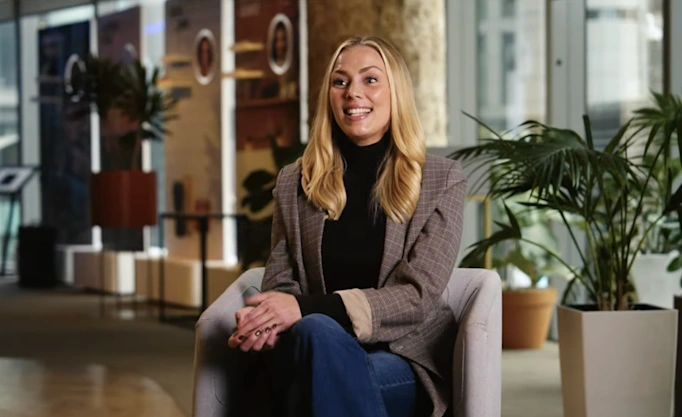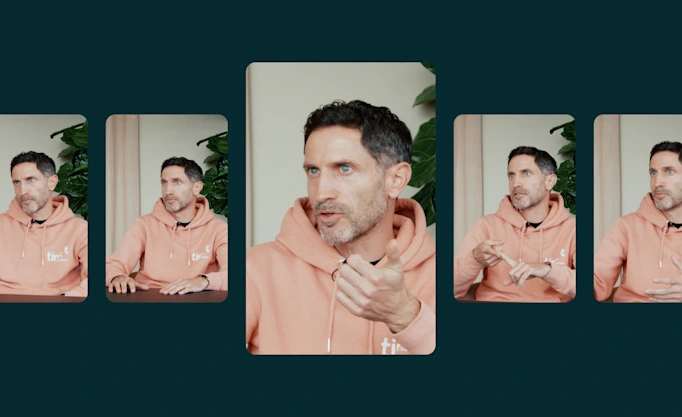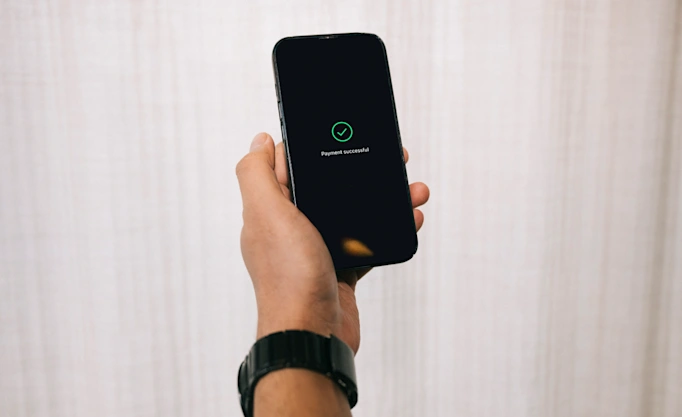The big lessons from Money20/20

Tink conversed, connected and listened at this year’s Amsterdam conference. And here’s what we learned about the major leaps the banking industry is taking in this era of open banking.
Klarna CEO: use customers’ data to offer value
Klarna’s CEO Sebastian Siemiatkowski took the main stage to talk about how the open banking revolution will give customers the freedom to move themselves and their data to the bank that offers them the most value.
Sebastian said banks have been obsessing more about its business than its customers. But PSD2 will dramatically change this. Customers will instead look for service providers who take their data, and create value for them.
“We can take data from customers, turn it around – and provide value, save time, provide more joy for them, provide less worry for them”, he said. “This is where we create true value and this is how the winners are going to act.”
One way to create value is helping customers with their daily admin tasks. To do this, Klarna has divided the company into many small, startup-like teams, each of which focus on solving a customer-centric problem – so customers can focus on the things that matter to them.

Banks embrace the benefits of data
Data is transforming the products banks can offer, and helping customers live better lives. "We recognise that the data is yours, but we as a bank must make it work for you," said BBVA CEO Carlos Torres Vila, during his talk on the big stage. This means helping customers with everything from predicting future spending to helping them save time buying a house.
In a panel discussion on whether banks of the future will just be “dumb pipes”, Starling Bank’s chief platform officer Megan Caywood argued that banks don’t have the technology to efficiently leverage data. So should banks build the tech in-house or buy it in order to leverage the open banking revolution? Tink CEO Daniel Kjellen argued in a related panel that buying the tech is often the only option for banks to gain the competitive edge.
Read more about how companies like Tink are helping banks leverage their troves of user data.
HSBC's Group COO Andy Maguire said the only way for bank and fintech partnerships to succeed is to build real solutions that create customer impact. He argued that proof-of-concept ideas are a waste of time, and that HSBC is “not in the business of inventing technology.”

Lessons on partnering with fintechs
Nordea, one of the biggest banks in the Nordics, has an open banking API platform and has been establishing many fintech partnerships, including one with Tink. In his talk, the bank’s Chief Digital Officer Ewan MacLeod shared his biggest lessons from partnering with fintechs:
We don’t have a monopoly on good ideas.
Fintechs can iterate really quickly.
Get out from behind your desks. Bankers need to travel, meet with startups, and understand what others are doing.
Quick decisions matter. Large banks need to be more agile in order to work well with fintechs.
Walk the walk. Banks often say “we should really do that”, but it has to be more than talk.
Deciding and moving quickly on tech
Tink CEO Daniel Kjellén participated in a panel called “Data Dinosaurs”, discussing how banks can approach the analytics quagmire, and what major tools and technologies they need to implement to avoid extinction. The audience asked if banks should develop the tech themselves or partner with fintechs and buy it. Daniel responded simply:
“We work with Klarna. They would never ask themselves whether to buy or develop the right technology in-house. They simply want the best.”
More in Open banking

2025-11-20
3 min read
Tink powers the UK’s first cVRP transaction with Visa A2A
In partnership with Visa, Kroo Bank, and Utilita, we’ve just helped demonstrate the UK’s first commercial variable recurring payment (cVRP) using the Visa A2A solution – and it’s a big step forward for how people make regular payments.
Read more

2025-06-09
11 min read
The case for “Pay by Bank” as a global term
Thomas Gmelch argues that "Pay by Bank" should be adopted as a standard term for open banking-powered account-to-account payments to reduce confusion, build trust, and boost adoption across the industry.
Read more

2025-06-02
3 min read
Tink joins Visa A2A – what it means for Pay by Bank and VRP
Visa A2A brings an enhanced framework to Pay by Bank and variable recurring payments (VRP) in the UK, and Tink is excited to be one of the first members of this new solution.
Read more
Get started with Tink
Contact our team to learn more about what we can help you build – or create an account to get started right away.
